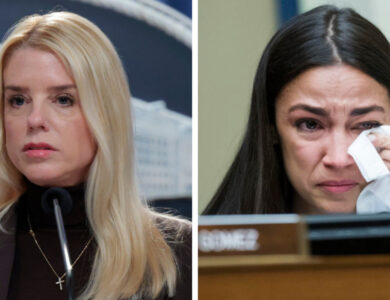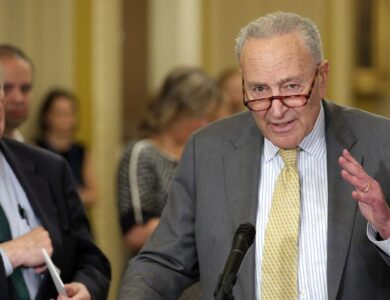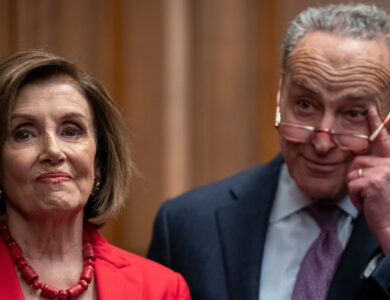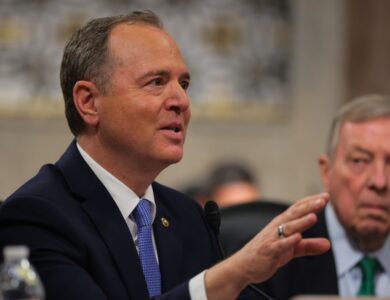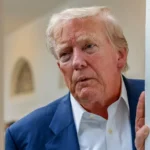DOJ Moves To Unseal Epstein, Maxwell Grand Jury Transcripts
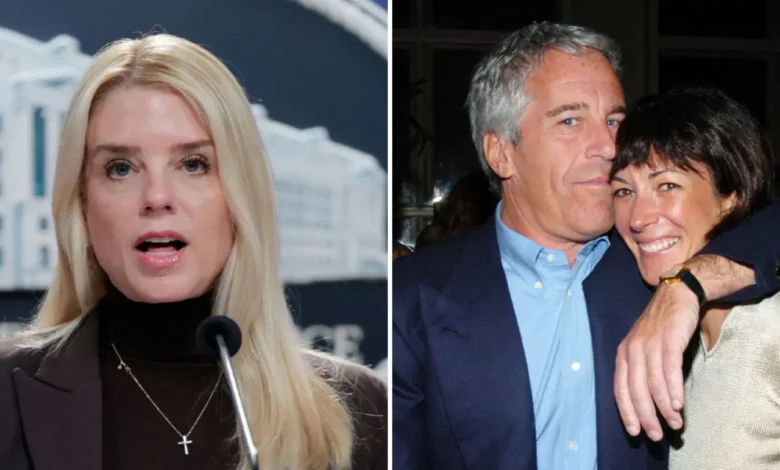
The Department of Justice (DOJ) is pushing to unseal long-secret grand jury transcripts from the Jeffrey Epstein case on Friday, claiming “intense public interest” in the famed sex trafficking probe, as directed by Attorney General Pam Bondi.
Deputy Attorney General Todd Blanche filed the motion in Manhattan federal court, urging a judge to release transcripts from Epstein’s 2019 grand jury proceedings and the prosecution of Epstein’s convicted associate, Ghislaine Maxwell, as part of the department’s new transparency push.
Earlier this month, the DOJ and FBI released a memorandum outlining an “exhaustive review” of their Epstein investigation files. That internal assessment attempted to discover whether any evidence might support prosecuting more individuals but determined that “no such evidence was uncovered” against any uncharged third parties.
Since the memo’s release on July 6, authorities believe public interest in its findings has remained high.
While the department continues to support the memo’s findings, the filing underscores that “transparency for the American public is of the utmost importance to this Administration.” Given the strong public interest, the DOJ informed the court that it is preparing to unseal the underlying grand jury transcripts to shed light on its investigation into the Epstein case.
The DOJ stated that it will cooperate with prosecutors to redact all victim names and personal identifying information from the transcripts before they are released.
“Transparency in this process will not be at the expense of our obligation under the law to protect victims,” the motion assured.
On July 2, 2019, a New York grand jury indicted Epstein, 66, on sex trafficking charges. On August 10, 2019, just over a month later, he committed suicide in his detention cell while awaiting trial, leading to the case’s dismissal.
Ghislaine Maxwell, Epstein’s longstanding confidante, was charged by a grand jury in 2020 on various counts of trafficking and coercing children.
In December 2021, a grand jury found her guilty and sentenced her to 20 years in jail. Maxwell’s convictions were affirmed on appeal in 2024, and she has petitioned the United States Supreme Court to examine her case.
Grand jury hearings are often kept private by law, or as the motion states, “a tradition of law that proceedings before a grand jury shall generally remain secret.” However, the filing acknowledges that this custom “is not absolute.”
Federal courts have acknowledged “certain ‘special circumstances’” in which publishing grand jury documents is permissible notwithstanding the typical exclusions, such as when a case is of major public or historical value.
The DOJ claims Epstein’s case is particularly unique because of its unequaled notoriety.
“Public officials, lawmakers, pundits, and ordinary citizens remain deeply interested and concerned about the Epstein matter,” the motion notes.
The motion points out that a Florida judge last year ordered the release of some Epstein grand jury records after concluding the financier was “the most infamous pedophile in American history” and that the facts of Epstein’s case “tell a tale of national disgrace.”
By the DOJ’s account, the sealed grand jury transcripts are “critical pieces of an important moment in our nation’s history,” and “the time for the public to guess what they contain should end.”
The suit emphasizes that Epstein’s death implies that any privacy interests on his behalf are now “substantially diminished.”
Even though Maxwell is still contesting her conviction, prosecutors argued that the intense public attention surrounding the Epstein case warranted proceeding with the unsealing now.
For these reasons, the DOJ is seeking the court to rule that the Epstein and Maxwell cases are issues of public interest and to approve the unsealing of the grand jury transcripts while lifting all protective orders.
The unsealing would shed unprecedented light on one of America’s most renowned criminal cases, a move that the department claims is legally legitimate and required in the interest of public transparency.
